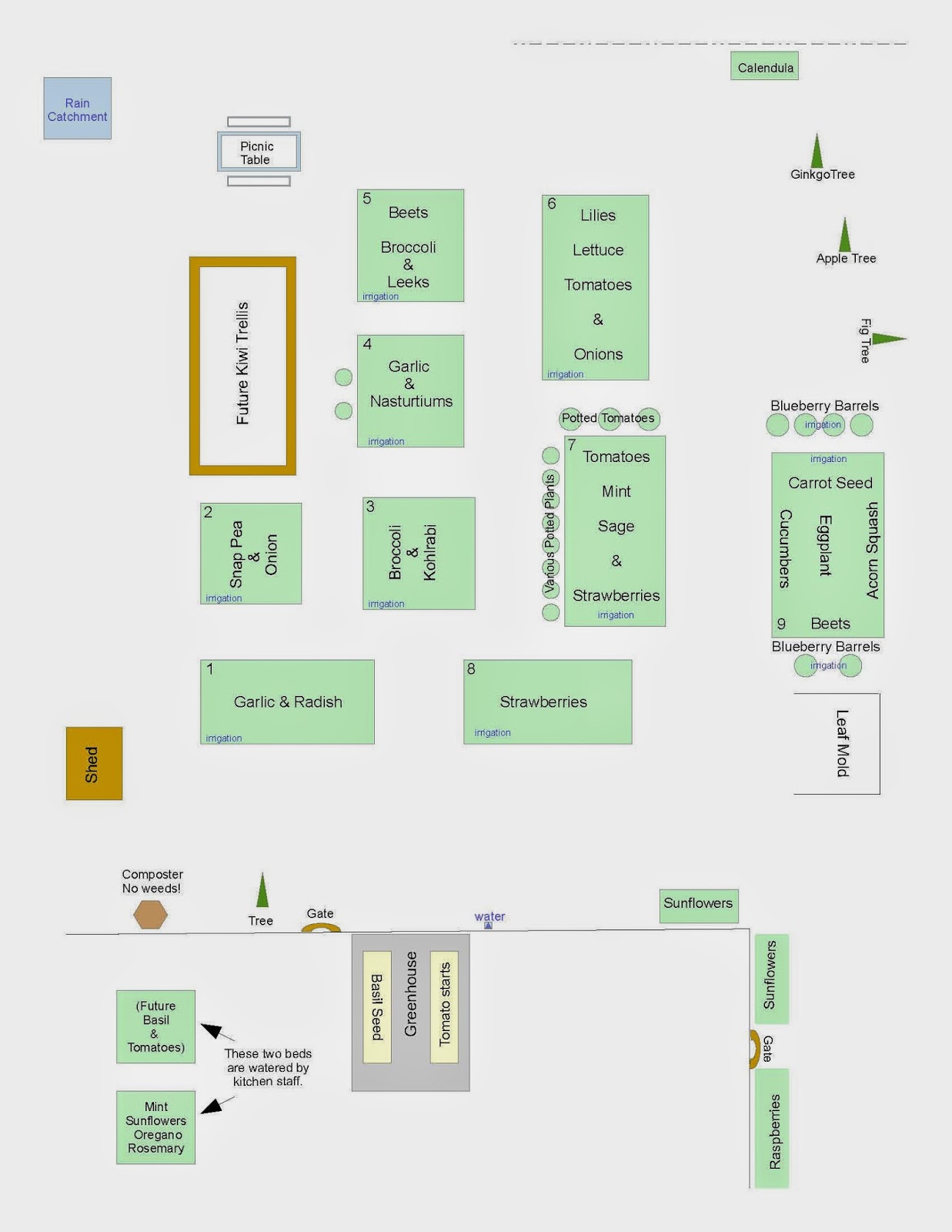THE GARDEN AWAKENS!
The Learning Garden is stirring from its winter slumbers. Over the next several months the garden will change shape, overflow its beds, creep across and down the hill slope to the west of Old Main, take on new technologies, and demonstrate ancient and resilient practices of food production for both perennials and annuals.PLANT SALE
APRIL 19-22, 1:30PM-5:30PM
 |
| Over 500 4" and 3" pots and 1" plugs, with 15+ kinds of starts! |
Donation Request: We currently need 4" pots and trays. Were also keen on perennial starts if you have any to donate. Please contact DDenniston@stmartin.edu
The better part of this of the Learning Garden is to help us all understand and create sustainable relationships between one another, our environment and our food. Money raised at the plant sale will be used to build out garden facilities, with projects ranging from a pergola and kiwi arbor to cloches, benches and more raised beds, creating a sense of 'Outdoor Classroom' for our verdant, perched terrace.
EVENTS
Wednesdays, 1:00PM-3:30PM
 |
| Wintered beds are waking up. Drop by and see the difference just 3 weeks can make! |
Companion Planting: A way to increase both production and individual plant vigor. We will discuss Allium, Rosa, and Mint companionship. If you would like to show up as early as 11AM to join our potting party, you'll also get a tutorial on starting tomato, tomatillo, ground cherry, cucumbers, select squash, corn beans, select flowers and more.
March 30-
Sheet or “Lasagna” Mulching: A quick way to develop deep, rich, living garden soil.
April 6-
Companion Planting #2: Three Sisters Guild: Corn, Squash, Beans. Why these three important continental food sources grow best when their roots and crowns mingle.
April 13-
We will be prepping for the plant sale this Wednesday. Drop in join us in making the space bright! Clean up, decorations, sign making.
FUTURE WORKSHOPS
 |
| Hisa and Ali remove aggressive Ivy and expand cultivation area. |
Worm bins, compost tea, and kitchen/pruning piles composting including biology, nutrient ratios, quality of feed product, and technological aspects of composting. See linked articles to learn more about composting http://www.edible-landscape-design.com/how-to-make-compost.html
Build a Seed Storage Locker ~
Recent archaeological digs have discovered squash seed caches over 800 years old- and the seeds are still viable. What conditions do seeds need for dormancy and storage? How long will they 'wait'? What stimulates germination? A good bit of that information can be found here: http://www.plantphysprimer.com/germination/
Introduction to Permaculture: System Theory, Design, and Practice ~ An important aspect of sustainability is systems thinking and design. Gardens are both a source of inspiration and the product of systems thinking via the work of design. Understand how systems thinking can increase product and quality while saving time and work. For an online primer see: http://www.permaculture.org/resources/gardens/
Thank you, and I look forward to seeing you in the Garden!
~Deston Denniston, MS, CPT













.JPG)
.JPG)
.JPG)





















